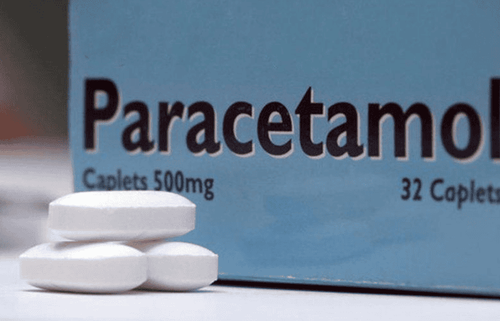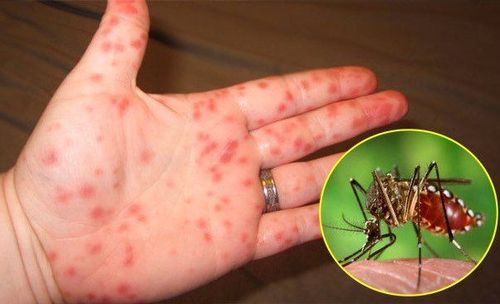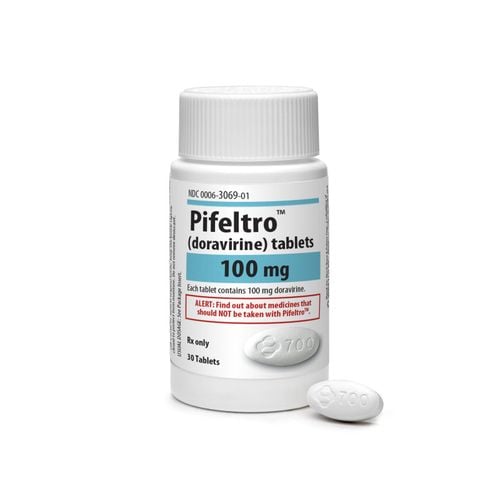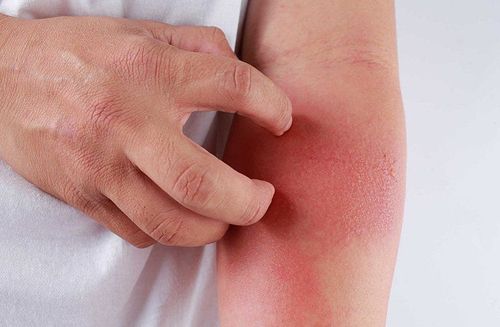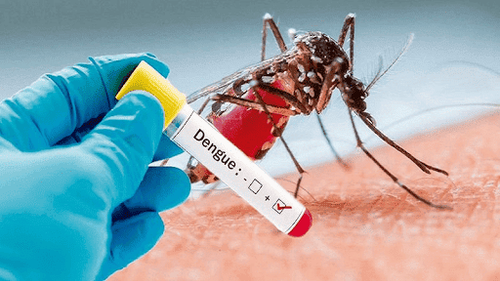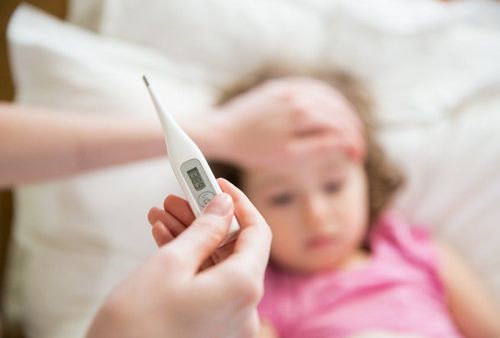This is an automatically translated article.
The article was professionally consulted by Doctor Head of Department of Medical Examination & Internal Medicine, Vinmec Hai Phong International General Hospital.
The incidence of dengue fever is increasing and there is a risk of outbreaks into epidemics. Therefore, correct awareness of the clinical course of the disease, especially the most dangerous stage of the disease, helps us to provide timely treatment solutions, limiting the unfortunate complications that may occur.
1. Causes of Dengue fever
Dengue hemorrhagic fever is an infectious disease caused by the dengue virus. There are four types of dengue virus: DEN-1, DEN-2, DEN-3 and DEN-4. The disease is spread by mosquitoes that transmit the virus from an infected person to a healthy person.
Dengue fever can range from mild, such as high fever and muscle aches, to more severe forms such as internal bleeding, shock from a sudden drop in blood pressure, and even death.
2. What is the most dangerous day of dengue fever?
How long does dengue fever last and what day is the most dangerous dengue fever is a common question of all patients. Usually, the onset of the disease is sudden and lasts 7-10 days. Especially note that 3-7 days is the most dangerous stage of the disease, which can be life-threatening. Dengue fever progresses from mild to severe through the following common stages:
Incubation period:
The incubation period lasts from 3-14 days, usually 4-7 days after being carried by mosquitoes. dengue virus bite. Depending on the age, location, immunity... of each person, the incubation period may be short or long. In this stage, it is difficult to detect the disease because there are often no symptoms or if present, the symptoms are very faint.
Fever phase: The patient has a sudden high fever, continuously for 2-7 days, accompanied by the following clinical symptoms:
Fatigue, headache Pain in both eyes, joint pain, muscle pain Nausea, vomiting, loss of appetite, epigastric pain and diarrhea. There are hemorrhagic nodules under the skin, bleeding gums or nosebleeds. Critical phase: usually on the 3rd to 7th day of illness, the patient's fever is reduced or no longer has a fever. Therefore, in many cases, patients had no fever on day 5 and mistakenly thought they had recovered; but note that this is the most dangerous stage of the disease and can have the following symptoms:
Hemorrhage under the skin: scattered hemorrhages on the front of the legs and the insides of the arms, abdomen , thighs, ribs Mucous membrane bleeding with bleeding from the nose, gums and bloody urine. Menstruation may be longer or appear earlier. Severe cases can lead to internal bleeding such as gastrointestinal tract, brain... Plasma leakage due to increased vascular permeability leads to pleural effusion, interstitial, peritoneal effusion causing skin tightening, eyelid edema and liver big. A lot of plasma leakage will lead to shock state with signs of palpitations, restlessness, lethargy, cold extremities, tachycardia and decreased blood pressure. Some severe cases can lead to multi-organ failure such as hepatitis, encephalitis, myocarditis. Subcutaneous hemorrhage: scattered hemorrhagic spots on the front of the legs and the insides of the arms, abdomen, thighs, ribs
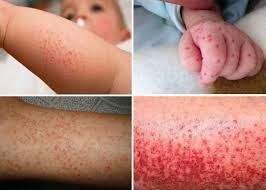
Recovery phase:
The recovery phase usually occurs 1-2 days after the critical period. This phase lasts about 48-72 hours. The patient's condition gradually improved. The patient has no fever, appetite and begins to urinate a lot. The patient may have bradycardia and altered electrocardiogram. Be especially careful at this stage if excessive perfusion can cause pulmonary edema or heart failure.
3. How to prevent and treat dengue fever?
Dengue fever has no specific treatment, mainly supportive treatment, symptom relief and prevention of complications. Dengue fever treatment measures include:
Rest Reduce fever with Paracetamol . In case the child has difficulty taking the medicine or vomits, it is recommended to choose the drug with orange or strawberry flavor, sweet taste Absolutely do not use aspirin, ibuprofen because these are non-steriod anti-inflammatory drugs, have anticoagulant effects, causing serious bleeding. more important. Rehydrate by drinking plenty of water, preferably oresol. "Prevention is better than cure". With the current complicated situation and the risk of an outbreak of an epidemic, in order to reduce the risk of dengue fever for yourself and your family, you need to take the following measures:
Sleep under a mosquito net, use semen Mosquito repellent oil or cream Spray mosquito repellent in the house and surroundings
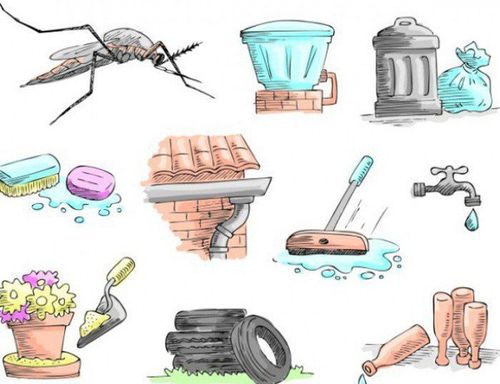
To prevent dengue fever, wash your hands with soap, clean the environment, ..avoid mosquitoes nesting, mosquitoes lay eggs
Clean the house, especially locations such as under the table, under the cabinet for mosquitoes no shelter. Cover water containers such as jars, jars, and storage tanks so that they do not have a growing environment. Children should not be allowed to play near stagnant ponds with standing water or trees, especially in the early morning or when it is cloudy. dim. Clear the bushes around the habitat to kill mosquitoes and larvae. Currently, there is no vaccine to prevent dengue fever, so raising people's awareness about environmental protection and sanitation to prevent mosquitoes is the best way to reduce the risk of outbreaks.
Please dial HOTLINE for more information or register for an appointment HERE. Download MyVinmec app to make appointments faster and to manage your bookings easily.
Articles compiled from the source: Department of Preventive Medicine - Ministry of Health




